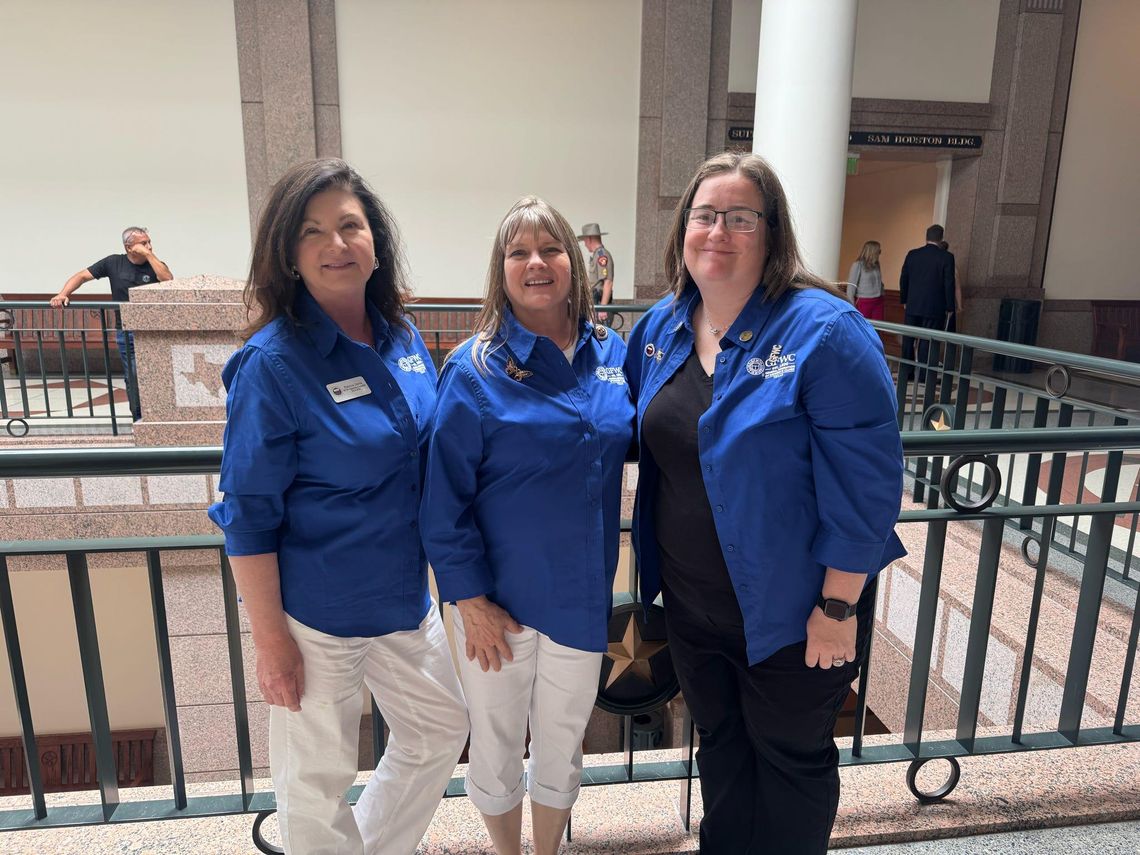On Tuesday, May 13, 70 members of the General Federation of Women’s Clubs (GFWC) from across the state of Texas visited the state capitol to share their concerns about human trafficking.
Every representative and senator’s office was visited by club members, who left packets with the resolution passed at the state convention, a message from the club president and brochures about GFWC and GFWC Texas.
Among the members present were GFWC History Club of Whitesboro members Patricia Davis, Keisha Head and President Donna Parkinson. They visited both the Senate and the House where proclamations were read to show their advocacy for victims of human trafficking.
According to the proclamations, “human trafficking is a form of modern-day slavery that exploits individuals through force, fraud, or coercion for labor or commercial sexual purposes.” Additionally, “due to its geographic location, large economy, and extensive transportation networks,” Texas is a major hub for human trafficking for sexual purposes, with thousands of victims impacted each year.
In a 2025 study conducted by Allies Against Slavery, from trafficking cases prosecuted nationwide, 510 occurred in Texas. Among Texas’ cities, Houston had the most trafficking location references with 128; then Dallas and Fort Worth with 71 and 36, respectively. There were another 81 instances where the locations were “unlisted,” unspecified in court documents.
“We deeply appreciate the leadership that the Texas Legislature has shown in addressing this issue,” wrote GFWC Texas President Barbara Harvey. “However, as traffickers continue to exploit vulnerable individuals, particularly women and children, we must do more. We respectfully urge you to continue strengthening laws that support survivors, hold perpetrators accountable, and provide resources for prevention, education and law enforcement training.”
The proclamations presented to legislators called for the Texas Legislature to prioritize and enact comprehensive legislation aimed at the following:
- Strengthening penalties for human traffickers for sexual purposes and those who knowingly facilitate trafficking.
- Expanding funding for victim services, including housing, healthcare and legal assistance.
- Enhancing mandatory training programs for law enforcement, educators, and healthcare professionals to identify and respond to trafficking for sexual purposes situations.
- Increasing public awareness campaigns to educate communities about the signs of trafficking for sexual purposes and available resources.
- Improving coordination among law enforcement agencies, non-profit organizations and social services to ensure a more effective response.
- Providing resources for research and data collection to better understand the scope of human trafficking for sexual purposes in Texas and develop evidence-based solutions.

